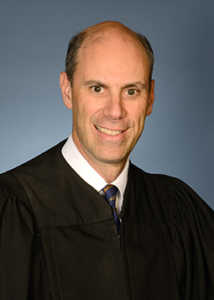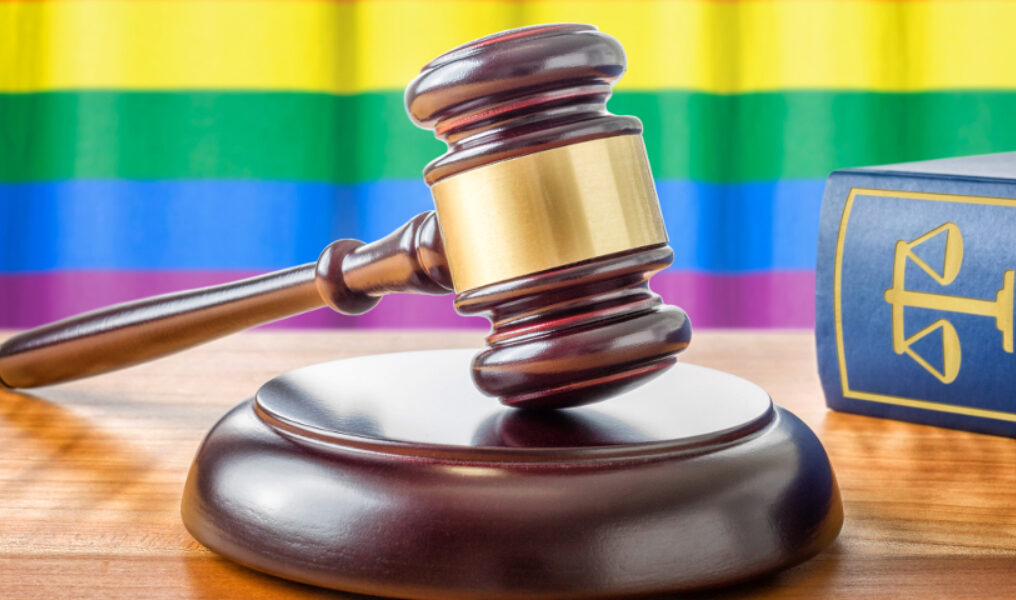A federal judge in Washington, D.C., indicated Monday he is not likely to grant an injunction to stop a Trump administration change in rules that will eliminate nondiscrimination protections for LGBTQ people.
In an hour-long hearing conducted by telephone Monday, lawyers for several health providers serving the LGBTQ community argued that a new rule set to take effect Aug. 18 eliminates the nondiscrimination language in Obama administration regulations. The regulations pertain to how the Affordable Care Act is to be implemented.
The ACA was enacted in 2011 under President Obama. Five years later, the Obama administration issued revised regulations stating that the law's prohibition against discrimination in health care on the basis of "sex" would also cover "sexual orientation" and "gender identity."
Attorneys for Lambda Legal, arguing before U.S. District Court Judge James E. Boasberg of the District of Columbia, said the new Trump rule was released just three days after the U.S. Supreme Court ruled that "sex" covers "sexual orientation" and "gender identity" in Title VII of the Civil Rights Act. They said they believe the Supreme Court decision, in Bostock v. Clayton County, should cover similar language in similar laws.

James E. Boasberg.
But Boasberg, an Obama appointee, asked whether he might be obliged to wait until the court rules on the same language in other laws before applying the Bostock reasoning to the ACA.
William Wayne, a Department of Justice attorney representing the Trump administration, agreed with Boasberg. He also argued that the July 19 rule change was already in the publishing process before the Bostock decision was released on June 15.
Judge Boasberg questioned why, after Bostock, "don't you have to put [the rule change] on hold and take [the Bostock decision] into consideration?"
"Why not stay its effective date and consider how Bostock affects the rule?" asked Boasberg.
At the end of the hearing, Boasberg gave DOJ until Aug. 10 to file a brief concerning a procedural issue in the dispute and said he would rule on the request for a preliminary injunction "a couple of weeks after" that filing.
Monday's hearing was about a motion to stop implementation of the new rule by the U.S. Department of Health and Human Services until the federal court can decide on the constitutionality of the new rule.
The overall lawsuit, Whitman Walker Clinic v. U.S. Department of Health and Human Services, involves a challenge by LGBTQ community health clinics in Washington, D.C., Los Angeles and others against a regulation from the Trump administration that they say "invites discrimination against LGBTQ people."
The new rule, set to go into effect Aug. 18, undermines regulations for implementing the federal Affordable Care Act that prohibits discrimination based on sexual orientation or gender identity in health care.
In June, the U.S. Supreme Court ruled in Bostock that "on the basis of sex" does cover sexual orientation and gender identity. It made its ruling in a dispute involving Title VII of the 1964 Civil Rights Act, that covers discrimination "on the basis of sex" in employment.
The U.S. House of Representatives filed a brief in support of the Whitman-Walker lawsuit, saying the ACA was intended to "remove discriminatory barriers" to health care. It noted that regulations for implementing the ACA under the Obama administration directed that the prohibition on discrimination "on the basis of sex" includes sexual orientation and gender identity. That language, noted the House brief, "involves nearly the same" legal terms as Title VII, decided in Bostock.
Last year, federal district court judges in Manhattan and Seattle struck down an HHS "Denial of Care" rule change that would have allowed health care providers receiving federal funds to cite "religious or moral objections" in order to deny services to certain patients.
And there are other federal lawsuits challenging the rule change that was before Boasberg Monday. Attorneys General for 23 states filed a lawsuit last month in federal court in New York, challenging the rule-change. States participating in the lawsuit include California, Illinois, Massachusetts, Michigan, New Jersey and New York.










